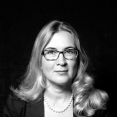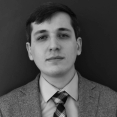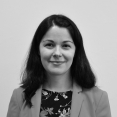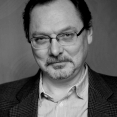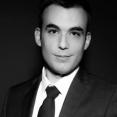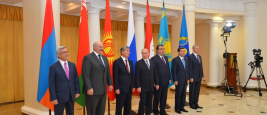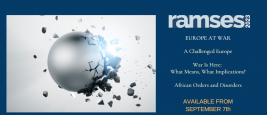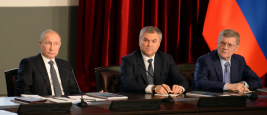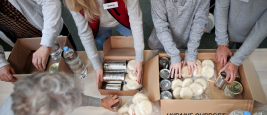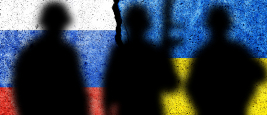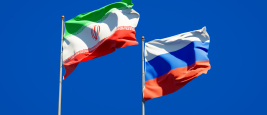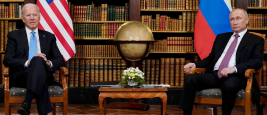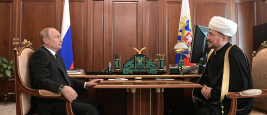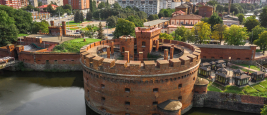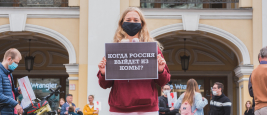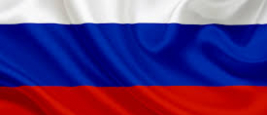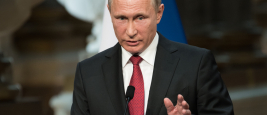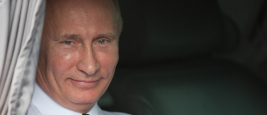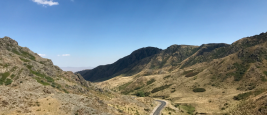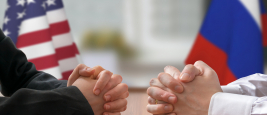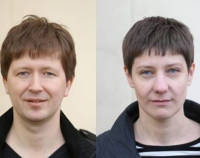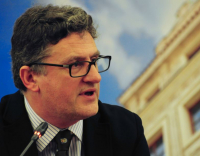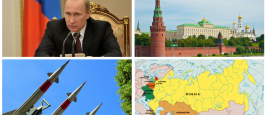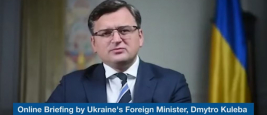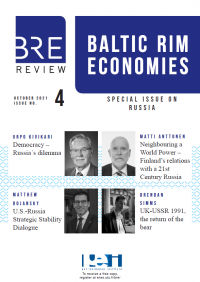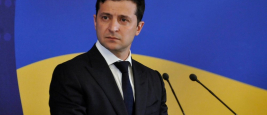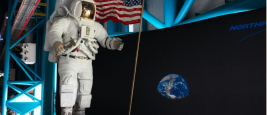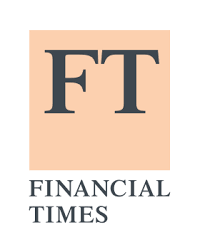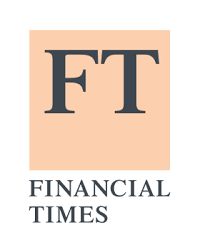The two years preceding the Russian invasion of Ukraine suggested that Russia had adopted a measured policy toward the post-Soviet space. Faced with social protests in Belarus, a coup in Kyrgyzstan, the victory of pro-European president Maia Sandu in Moldova, the second war in Nagorno-Karabakh...

Russia / Eurasia

Post-Soviet Russia has gradually asserted itself as an imperial and anti-Western power, representing a threat to the independence of its Eurasian neighbors, as well as to the post-Cold War international order. The Kremlin’s invasion of Ukraine on February 24, 2022 is the culmination of this behavior, with both regional and global consequences. Now cut off and isolated from the Euro-Atlantic space, Russia is seeking to deepen its partnership with China and to turn towards non-Western worlds, especially in Asia and Africa. In the Eurasian space, historically dominated by Russia, the war amplifies centrifugal tendencies. The speed and depth of the transformations underway require constant and precise monitoring of the internal and external policies of the countries in the area.
Founded in 2005 at Ifri, the Russia/Eurasia Center produces research and organizes debates on Russia, Eastern Europe, Central Asia and the South Caucasus. Its objective is to understand and anticipate the evolution of this complex and rapidly changing region in order to enrich the public debate in France and Europe, and to assist in strategic, political and economic decision-making. Over time, the Russia/Eurasia Center has developed a network of contacts from institutions and civil society in the countries of the Eurasian space, and has established multiple partnerships with research institutes in Europe and around the world.
The digital collection Russia.Eurasia.Visions (formerly Russia.Nei.Visions), published by the Center, has become a reference point, with articles published in three languages (French, English and Russian). Relying on a network of leading experts and promising young researchers, it offers original analyses intended for public and private decision-makers, researchers, as well as for a wider public interested in the area.
Director of Ifri's Russia / Eurasia Center
...Research Fellow, Russia / Eurasia Center
...Project Officer, Russia / Eurasia Center
Associate Research Fellow, Russia / Eurasia Center
...Associate Research Fellow, Russia / Eurasia Center
...Associate Fellow, Russia / Eurasia and Geopolitics of Technologies Centers
...Associate Fellow, Russia / Eurasia Center
...For its 41st edition, RAMSES 2023. Europe at War, written by Ifri's research team and external experts, offers an in-depth and up-to-date analysis of geopolitics in today’s world.
Despite the unprecedented sanctions against Russia following Vladimir Putin's decision to invade Ukraine on February 24, 2022, no important member of Russia's ruling circles has defected.
Ukrainian institutions have overall withstood the shock of the war: the central government and local authorities benefit from a real legitimacy and a solid ability to govern.
On February 24, 2022, eight years after deploying an integrated military and non-military indirect strategy against Kiev, Vladimir Putin decided to initiate an open war against Ukraine.
The strengthening of the partnership between Russia and Iran depends on overlapping security interests; bilaterally, regionally and on the world stage.
The escalating crisis in Ukraine in the winter of 2021-2022 has returned US-Russia relations to center stage.
Russia’s Islam has been much more than the two Chechen wars, and regular terrorist actions that have shaken the Russian territory. Islam constitutes an integral part of Russia’s history and culture, and the Putin regime regularly celebrates Islam’s contribution to the country and its great...
Since 2014, Russia’s policies toward Kaliningrad Oblast—its westernmost region located between Lithuania and Poland and physically cut off from Russia’s main body—have undergone notable transformation. One crucial change was the inception of a policy aimed at remilitarization, which has...
Year after year, Russian liberal politicians and experts have been promising radical changes in Russia’s economics and politics, which, they believed, would lead to the collapse of the Putin regime.
A Changing Energy Market: A Challenge for Russia? By personal and non-transferable invitation
This event is dedicated to the public and corporate supports of Ifri's Russia/NIS Center. By personal invitation only.
...
Russia: challenges of the next presidential term 2018-2024 By personal and non-transferable invitation
This event is dedicated to the Russia/NIS Centre Corporate supports. By personal invitation only.
...
Towards Vladimir Putin’s Fourth Term as President: Challenges and Prospects By personal and non-transferable invitation
This event is dedicated to the Russia/NIS Centre Corporate supports. By personal invitation only.
...
Russia by 2025: which scenarios? By personal and non-transferable invitation
This event is dedicated to the Russia/NIS Centre Corporate supports. By personal invitation only.
...
China’s Belt and Road – Towards Globalization with Chinese Characteristics? Ifri-OCP Policy Center Roundtables
In 2013, Chinese president Xi Jinping first unveiled his broad vision to develop regional connectivity and infrastructure across Eurasia that would later be officially named the Belt and Road Initiative (or yi dai yi lu, One Belt, One Road, or OBOR).
Moscow-Washington: assessing Obama’s legacy, anticipating Trump’s policy By personal and non-transferable invitation
This event is dedicated to the Russia/NIS Centre Corporate supports. By personal invitation only.
...
The Internet: a new Russian “weapon”? By personal and non-transferable invitation
This event is dedicated to the Russia/NIS Centre Corporate supports. By personal invitation only.
...
Russia and Information Warfare: Aims, Tools and Implications for the West By personal and non-transferable invitation
This event is dedicated to the Russia/NIS Centre Corporate supports. By personal invitation only.
...
Silovik Stockholm Syndrome: Russia's security agencies as drivers, beneficiaries, and victims of Putinism By personal and non-transferable invitation
This event is dedicated to the Russia/NIS Centre Corporate supports. By personal invitation only.
...
International Seminar - Russia 2016: Return of Great Power Strategy? By personal and non-transferable invitation
This event is dedicated to the Russia/NIS Centre Corporate supports. By personal invitation only.
...Since 2014, Ukraine's territorial integrity and security have been challenged by Russia's annexation of Crimea and by the conflict in Donbas. Military maneuvers in spring and October 2021 have raised the threat of open armed conflict between Ukraine and Russia. Kyiv, on the other hand,...
We ask experts whether the Kremlin’s latest moves on climate, including its 2060 net-zero target, heralds genuine change or more greenwash.
...With more than one million HIV-positive people, Russia is one of the countries most affected by HIV/AIDS. The first cases appeared in the USSR in 1987 in the south of Ukraine (port of Odessa). Since then, the number of HIV-positive people has steadily increased.
lya Sachkov did not hold back, even though Russia’s prime minister was watching him on a panel starring the heads of the country’s top tech companies.
Our main story this week is the treason case against Ilya Sachkov, the 35-year-old CEO of the cybersecurity firm Group-IB. On Wednesday morning, September 29, hours after officials raided the company’s Moscow office, a local court jailed Sachkov for the next two months, pending trial.
GLONASS, Moscow’s answer to GPS, is set to launch an upgraded satellite network later this year, which it hopes to sell to the U.S. and Europe. Buyer beware.
After the recent intensification of dialogue between official Kyiv and President Biden’s administration, in the wake of the rising threat to Ukraine posed by Russia and in anticipation of President Biden’s visit to the UK and EU, President Volodymyr Zelensky and his team...
The series For All Mankind (2019) is a fictional alternate history that imagines a world where the Soviet Union was the first power to send an astronaut to the moon. From that starting point, the two rival superpowers compete to establish their own lunar station.
Zelensky’appeal for help in Paris follows Biden’s condemnation of Russian ‘aggression’.
Kremlin stance is blow to European countries which favour outreach to Moscow. Russia’s combative treatment of the EU’s top diplomat during a landmark trip there has triggered a political outcry — but little expectation that the European bloc will end divisions over how to handle the Kremlin.<...>



